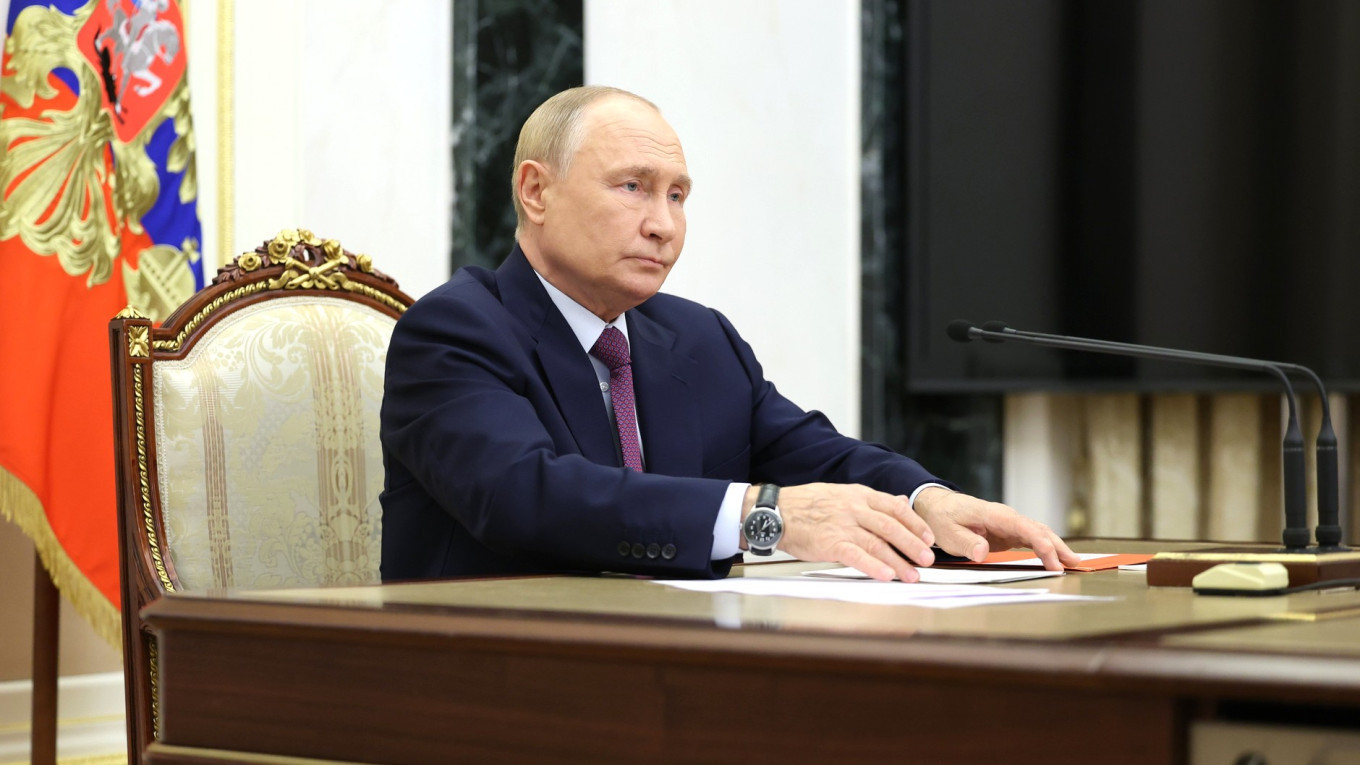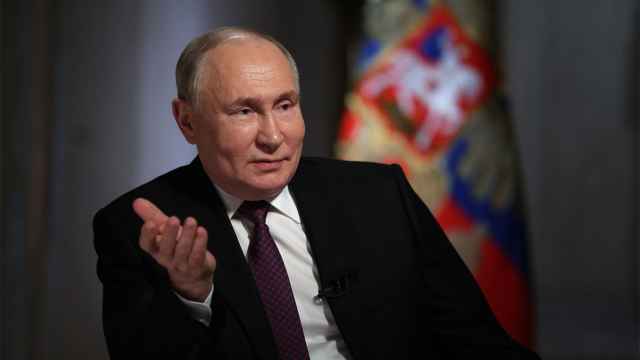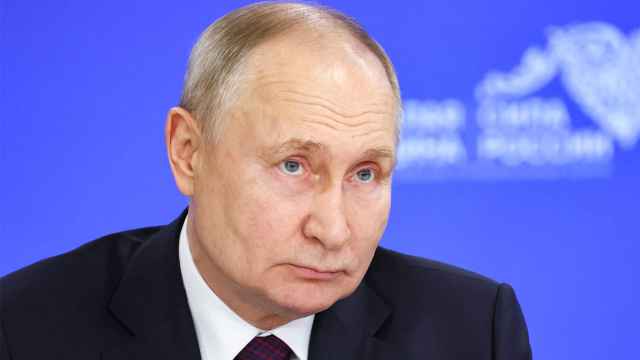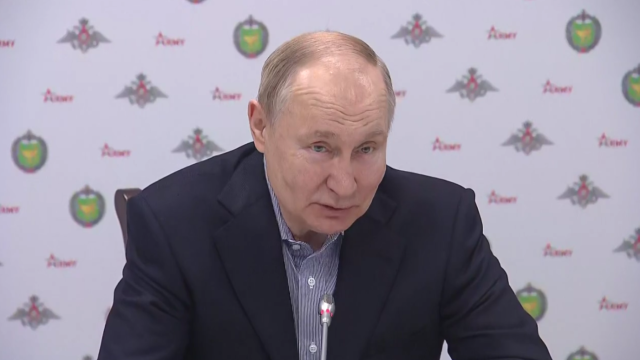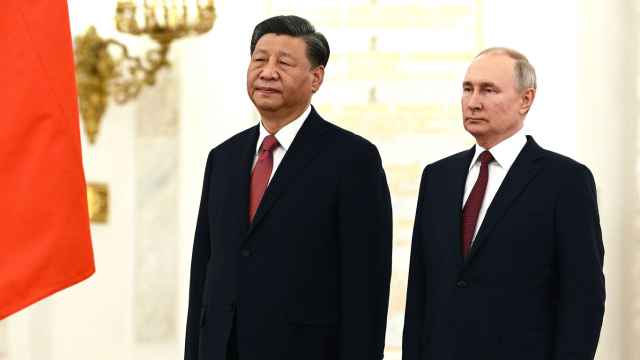Russian President Vladimir Putin on Sunday proposed holding direct talks with Ukraine in Istanbul on May 15, hours after Kyiv and European leaders called for an unconditional 30-day ceasefire to start Monday.
The leaders of Ukraine, Britain, France, Germany and Poland had in Kyiv on Saturday threatened Moscow with fresh sanctions and military support for Ukraine if Russia did not agree with the proposal.
Putin did not explicitly address that call in his statement, delivered after 1:00 a.m. in the Kremlin, instead outlining the counter-proposal for fresh Russia-Ukraine negotiations.
"We propose to the Kyiv authorities to resume the talks that they broke off in 2022, and, I emphasise, without any preconditions," Putin said.
Russian and Ukrainian negotiators held direct talks in Istanbul in the first weeks of the conflict, but failed to agree to halt the fighting, which has been raging ever since.
"We propose to start [negotiations] without delay on Thursday, May 15 in Istanbul," Putin said, adding that he would talk to Turkish President Recep Tayyip Erdoğan soon to ask for his help to facilitate the talks.
Putin said he was "committed to serious negotiations with Ukraine" and that he wanted talks to "eliminate the root causes of the conflict and to establish a long-lasting peace."
Russia's references to the "root causes" of the conflict typically refer to alleged grievances with Kyiv and the West that Moscow has put forward as justification for launching the war in February 2022.
They include pledges to "de-Nazify" Ukraine, protect Russian speakers in the country's east, push back against NATO expansion and stop Ukraine's westward geopolitical drift.
Kyiv and the West have rejected all of them, saying Russia's offensive is nothing more than an imperial-style land grab.
Tens of thousands have been killed since Russia launched the war, with millions forced to flee their homes.
'Anti-Russian rhetoric'
"We do not exclude that during these talks we will be able to agree on some new ceasefire," Putin said.
He also accused Ukraine's Western backers of wanting to "continue war with Russia" and — without mentioning the specific Ukraine-European proposal for a 30-day ceasefire — slammed European "ultimatums" and "anti-Russian rhetoric."
"A potentially great day for Russia and Ukraine!" U.S. President Donald Trump posted on his Truth Social platform shortly afterward, without specifying what he was referring to.
He vowed to "continue to work with both sides to make sure that it happens."
But French President Emmanuel Macron, who hours earlier had met with German Chancellor Friedrich Merz, British Prime Minister Keir Starmer and Polish Prime Minister Donald Tusk in Kyiv in a symbolic show of support for Ukraine, warned that Putin was merely trying "to buy time."
"An unconditional ceasefire is not preceded by negotiations, by definition," he told reporters as he stepped off a train in the Polish city of Przemysl on his return from Ukraine.
The European leaders, together with Ukrainian President Volodymyr Zelensky, had pressed Russia in the Kyiv meeting on Saturday to accept a 30-day unconditional ceasefire starting on Monday, threatening Moscow with new sanctions if it did not comply.
The United States and other countries back the proposal, they said.
"We have just now... decided to support a ceasefire which will begin next Monday, without any preconditions," Macron told a press conference in Kyiv on Saturday.
The leaders also held a video conference with their counterparts from about 20 other member countries of the "coalition of the willing" supporting Ukraine.
"In the event of a violation of this ceasefire, we have agreed that massive sanctions will be prepared and coordinated between Europeans and Americans," Macron said.
The United States and Ukraine have for weeks pushed a similar proposal, which Russia has not accepted.
Trump had threatened to walk out of talks over the lack of progress on ending the war, after vowing during the U.S. election campaign to halt the conflict within a day of taking office.
Kyiv and its allies had feared that Trump was pivoting toward Moscow because he had clashed with Zelensky. But Trump has recently expressed growing impatience with Putin.
A Message from The Moscow Times:
Dear readers,
We are facing unprecedented challenges. Russia's Prosecutor General's Office has designated The Moscow Times as an "undesirable" organization, criminalizing our work and putting our staff at risk of prosecution. This follows our earlier unjust labeling as a "foreign agent."
These actions are direct attempts to silence independent journalism in Russia. The authorities claim our work "discredits the decisions of the Russian leadership." We see things differently: we strive to provide accurate, unbiased reporting on Russia.
We, the journalists of The Moscow Times, refuse to be silenced. But to continue our work, we need your help.
Your support, no matter how small, makes a world of difference. If you can, please support us monthly starting from just $2. It's quick to set up, and every contribution makes a significant impact.
By supporting The Moscow Times, you're defending open, independent journalism in the face of repression. Thank you for standing with us.
Remind me later.


